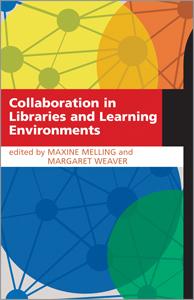
Primary tabs
You don't need to be an ALA Member to purchase from the ALA Store, but you'll be asked to create an online account/profile during checkout to proceed. This Web Account is for both Members and non-Members. Note that your ALA Member discount will be applied at the final step of the checkout process.
If you are Tax-Exempt, please verify that your account is currently set up as exempt before placing your order, as our new fulfillment center will need current documentation. Learn how to verify here.
- Description
- Table of Contents
- About the authors
- Reviews
With the constant changes in higher education, innovations such as outsourced shared services, the convergence of many different student-facing services, and the development of more active collaborative networks are more important than ever before. This collection recognizes and uncovers the innovations that leaders and practitioners are implementing to transform and develop the provision of sustainable and creative support services. A host of international contributors consider the foundational principles which affect library services, give case studies of changes that have already taken place, and show how various institutions are rising to the challenge. Their essays address a broad spectrum of contexts both inside and outside library and information services, and cover such key topics as
- The changing higher education context and how to build service success in uncertain times
- Connecting with the student perspective
- Working with professional associations
- Culture, values and change: observations from three consortia in Canada
- Managing complex change collaboratively and creatively
- Leaders and influencing skills of the future
- The role of technology in enabling collaboration and the role of shared data in extending the library's value
- Changing the boundaries and the communal nature of space in the academic library
- Collaborative service provision through super-convergence
- Joint use libraries and transformational change
Read the Table of Contents and Chapter 1 of this book now!
Maxine Melling
Maxine Melling is Director of Library and Student Support at Liverpool John Moores University, UK.
Margaret Weaver
Margaret Weaver is former interim Head of Library Services at Brunel University London. A founding member of the Northern Collaboration group of academic libraries, she has also chaired the (North West Academic Libraries (NoWAL) collaboration and has contributed to the professional literature throughout her career on subjects such as management and leadership, strategic staff development, learning support models, technology rich learning spaces and latterly libraries and the student journey. She is an Associate of the Higher Education Academy and a Chartered member of CILIP, the Library and Information Association.
"Teamwork is a vital element in many environments, especially in library education. Collaboration in Libraries and Learning Environments discusses the role of libraries in higher education and their role in this shifting environment. Support is the primary aspect of man libraries in higher education now, and with the advent and advancement of internet methods, libraries must be on the ever cutting edge to reach out to their patrons. With advice on how to build these services when it's unsure what the next year will bring, understanding the needs of the student, leadership within the library, working with other libraries, collaboration, and much more ... Collaboration in Libraries and Learning Environments is a strongly recommended read for library science collections, not to be missed."
--Midwest Book Review
"A topical international cross-section of useful collaborations and ‘super-convergences'. It should strike chords and inspire analogous innovations."
— Australian Library Journal


